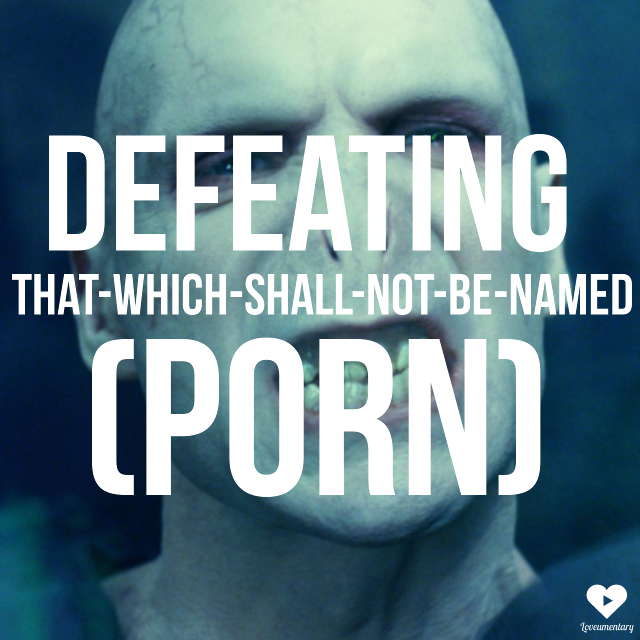Want to know what brushing your teeth (the title) and Bruce Lee (the image) have in common? How on earth will they help you have an awesome realtionship? Read this post to find out!
Our oven caught on fire last night!
What to do when your partner suffers from depression with Kim and Seth Adam Smith
Depression and mental health is something we are all affected by. We know so little about it, and there isn't a lot of help or resources that have proven to be effective across the board.
The help, support, and resources that do exist are typically for the person suffering from mental illness, and not for the partner, which can leave the partner who isn't battling the illness feeling just as alone and helpless as the person who is.
In this episode Seth and Kim give us a look into how they have navigated depression and mental health in their relationship. They'll tell you what works for them, and what doesn't.
I hope you share this episode with someone who needs to hear it. Thanks for listening!
How to get the love you want and give the love they need!
In this episode I sit down with Vienna Pharaon, a licensed Marriage and Family Therapist based out of New York City.
We have an awesome conversation about John Gottman's Four Horsemen of the Apocalypse: Criticism, Contempt, Defensiveness and Stonewalling. We talk about controlling our personal narratives. We discuss assuming positive intent, and having a low negativity threshold (you'll learn about both of those principles in the middle of the show).
Vienna is sweet, knowledgable, and wonderful. I hope you enjoy the insights she brought to this conversation! Check out her incredible Instagram profile, and her website.
SHOW NOTES
Vienna Pharaon is a licensed Marriage and Family Therapist in the state of New York, practicing out of New York City, conveniently located near Grand Central Station. Vienna received her Master of Science in Marriage & Family Therapy from Northwestern University, and trained extensively at The Family Institute, Bette D. Harris Center. There she treated individuals, couples, and families in a clinic setting. Vienna also received training at Family Focus, a community outreach program, providing community-, home-, and clinic-based therapeutic services for individuals and families.
2:30 - Introduction to Vienna
4:00 - "Getting the love you want doesn't mean giving the kind of love that you want to get. "Do unto others the way you would like them to do unto you."
5:00 - You can give love and your partner can still say, "I don't feel loved by you." There are different types of love to give and receive.
6:45 - How much responsibility do we have in getting the love we want?
7:45 - The myths of "If it's true love, we should just 'get' each other." And "I shouldn't have to ask for what I want."
10:40 - How do you consciously change your inner narrative?
12:37 - Why is it important to change your mindset from "I don't deserve" to "I do deserve"?
16:30 - 25:00 - The Four Horsemen of the Apocalypse that will destroy your marriage
17:45 - Without communicating effectively you just can't have a successful relationship. There's no way to get and give the love that you want if you can't ask for it, or hear what your partner needs.
25:59 - Assuming good intent is crucial. You need to assume that your partner means well even when they're doing something irritating or hurtful.
27:40 - When you assume malintent, you're almost always wrong. Unless you have a horrible partner, they're probably not out to get you and make your life horrible.
28:58 - You're more likely to be heard when you come from a place of kindness and understanding instead of anger and resentment. You can't get love if you're assuming malintent.
30:47 - Low Negativity Threshold: Why "Choose your battles," or "Just let the little things roll off your shoulders," is terrible advice.
32:00 - The happiest couples talk about the things that bother them (without making them a big deal) and get them resolved.
36:15 - It's important to learn to honor the "alone," and to develop a sense of love and belonging within yourself rather than the "I'll love you if you love me" mentality.
38:50 - Just because someone gives you love in a way that's not your love language doesn't mean you can't receive it graciously.
41:21 - It's scary to go down a road with someone that you've been down before and been hurt. You need to lean to create a positive narrative in your head that the person you're with will be there for you in a way nobody else has been in the past.
42:35 - "Have enough courage to trust love one more time and always one more time." -Maya Angelou
Why We Apologize
When I got married 4 months ago the last thing I wanted to do is hurt my wife.
But no matter how hard I try, no matter how much effort I put into our relationship, no matter how many skills I put into practice, I inevitably say (or don’t say) or do (or don’t do) something that causes her pain.
Interesting thing about us humans, when something causes us pain, we instinctively or pull away from it.
So, when you get burned by the stove, poked by a needle, or punched in the face you flinch. You protect yourself. You put distance between you and the threat of pain.
You do this because your brain hates pain.
Here's a crazy thing about the way your brain processes pain… it isn’t biased… emotional pain and physical pain trigger the same response in your noggin, so your reaction to getting hurt physically or emotionally is the pretty much identical.
That means when you hurt your partner (whether you mean to or not) they will instinctively withdraw.
So, if you want any sort of closeness or intimacy in your relationship we need to deal with this whole “emotional retreat” thing, or it will cause us some problems.
So now it’s time to bust a big myth about apologizing Adam Savage style:
Your whole life you’ve been taught to apologize when you’re wrong, or when you make a mistake. This is great advice! Being accountable for your screw-ups is a trait found in good humans everywhere. But it’s not why you apologize to your partner.
You apologize to your partner because they are experiencing pain, and they’ve pulled away from you.
You apologize to them because, whether you meant to or not, your words or actions were the emotional fire, the needle, or the punch to the face that caused the "flinch."
If you want to restore the intimacy and closeness needed for your relationship to work, you need to say, “I’m sorry.”
You must apologize to offer your partner the gift of healing.
You must apologize when you offend her or hurt her feelings on accident.
You must apologize when you disrespect him or emasculate him unintentionally.
You must apologize even when you’re right. You must apologize when your wrong. You must apologize any time you hurt your partner, because when you cause them pain and don’t heal that pain, you create emotional distance between you and your love.
You jeopardize the strength and integrity of your relationship.
Give yourself, your partner, and your relationship a fresh start. Apologize. Heal each other. It’s the most beautiful gift you can give the person you love.
Dream Together
Don't Let Your Dreams be Dreams
Relationship researchers at The Gottman Institute have found that once couples get a solid foundation for a healthy relationship into place - mutual respect, learning to turn towards each other and not away from each other, good conflict management skills - one of the most important things they can do to make their relationship thrive is to pursue each others dreams together.
There's something powerful in helping make someone's dreams become reality. It creates a powerful bond of trust and feelings of excitement, anticipation and shared meaning when you have someone back you up and push you to be your best self.
Pursuing your dreams even opens the door to resolve some of your most complicated conflicts. (Often times the reason behind recurring conflict is unfulfilled or unspoken dreams.)
But before you can support each other in your dreams, you need to allow yourself to dream! It's easy to forget to do that. The pressure to be a responsible, reasonable, rule-following adult may have smothered the dreamer inside you many years ago.
It's time to ask yourself: Where do you want to go? What do you want to accomplish? What problem do you want to solve? What mountain do you want to climb? What adventure do you want to embark on? What hero do you want to meet? What book do you want to read? What book do you want to write? What new hobby do you want to pursue? What value do you want to cultivate? What do you want your kids to say about you at your 50th anniversary party? What do you want written on your tombstone?
Once you let yourself (and your partner) start dreaming... seriously dreaming, you can start to invest your time, resources, thoughts and energy into supporting those dreams as they become goals.
In this week's podcast, Michelle Peterson from the #STAYMARRIED Blog shares with us four different ways to support our partner in their dreams: Emotional support, esteem support, informational support and tangible support.
If you want to learn more about each of these types of support, listen to the podcast or check out this post on the #STAYMARRIED blog.
Don't let your dreams be dreams!
Travel to Europe, go skydiving, get SCUBA certified, learn to dance, go on a hot air balloon ride, learn French, master the perfect chocolate chip cookie, move to the beach, make a plan to pay off your parent's home, start a non-profit, write that book, learn a new instrument and start a band, join a gym, be an amazing friend, perform your first standup comedy routine... live life!
S02 E01 - Jennifer Finlayson-Fife: Virtue, Passion, and Owning Your Desire
3 Myths About Sex and Relationships
I recently had the opportunity to sit down with one of my favorite psychotherapists, Jennifer Finlayson-Fife, to talk about relationships and sexuality. During our conversation, Jennifer debunked some serious relationship myths. I've been excited to share them with you from the moment I stopped recording.
What you're about to read is just the very tip of the iceberg. If you want to dive deeper, please listen to the episode (embedded above). I firmly believe everyone who wants a great relationship would benefit from sitting down with Jennifer, or someone like her.
I hope these words and lessons help to make you a better, more understanding, and more loving partner.
Edit: Jennifer's courses were some of the most important and impactful tools in helping me and my wife create an amazing marriage, and I just found out they're on sale for Christmas! The courses include "office hours" with Dr. Finlayson-Fife and are a cost-effective way to address and navigate marital challenges. This is a great opportunity! Here's the link.
Being Selfless is the Key To an Awesome Relationship
Whenever I tell people about this podcast, it's almost inevitable that they will share with me what they believe is the "Key to True Love." If I had a dollar for every time someone told me that the "Key to True Love" is to "put your partner's needs and/or desires before your own," I'd be a very rich man.
Granted, this theory isn't entirely flawed. There's virtue in taking care of one another. But just like most attempts at giving universal love advice, this idea has the potential to be very damaging if taken at face value, especially if taking care of our partner means sacrificing our own needs.
As Dr. Finlayson-Fife puts it, “When we won’t take care of ourselves, the fantasy is that somehow we’re being selfless and that this is blessing other people’s lives. But in reality, if you won’t manage yourself, you pressure everyone else to manage you… if you don’t take a hold of yourself and live a life you respect, you’ll suck the life out of everybody around you, which is very very selfish in the name of selflessness.”
It reminds me of how I used to abuse the Golden Rule. You remember the old adage from the Bible, "Do unto others as you would have them do unto you?" Well, my version was "Do unto others as I expect them to do unto me."
I would do something kind for a girl and then get frustrated when it wasn't reciprocated. I would give compliments to friends and then get disappointed when they didn't offer compliments back. I would give of my time, energy, and resources - many times with what I felt were sincere and selfless intentions - then get discouraged and even angry when I felt like I was getting walked on or taken advantage of.
In many of these cases I felt like a martyr. "I am always the one putting in all the effort, and nobody else will reciprocate!"
Maybe this sounds familiar to you...
Once again, Dr. Finlayson-Fife chimes in with her wisdom. "Being a martyr is not a selfless position. It’s an extremely entitled position. It’s like saying, “I’m not going to take responsibility for my desires. I’m not going to be honest and straight up about what I want. But I’m going to demand that you figure it out and give it to me, and I’ll resent you enough if you don’t that I’ll go do what I want on the side."
At the end of the day, your partner is not responsible for discerning and then meeting your basic needs and desires. You are. You're responsible for asking for time alone if you need it. You're responsible for initiating intimacy if you want it. You're responsible for saying "no" if you're too busy to do something. You're responsible for your thoughts, feelings, desires, words and actions and how they come (or don't come) into fruition in your relationships.
Anxiety Means There's Something Wrong In My Relationship
One of the top excuses I hear people using to avoid or abandon something good is that it "doesn't feel right."
Anxiety is often the culprit for these negative feelings.
Don't get me wrong, there are definitely times when you should trust your gut, but remember, not all feelings are created equal. I mean, your primal instincts could be giving you that uneasy feeling because it sees a huge threat looming just out of sight. Or that gross pit in your stomach might be there because you ate a bad taco for lunch.
Anxiety is complex and misunderstood creature, and despite how you might feel, it's not always bad. As Dr. Finlayson-Fife explains, there are two types of anxiety:
Unproductive anxiety vs. Productive Anxiety
Unproductive Anxiety - When you try to control things you can’t control.
For example: I'm worried my husband will die in a car crash. I'm worried my wife might one day die of cancer. I'm worried that it will rain on our wedding day. I'm worried that aliens will abduct me in my sleep to do all sorts of tests.
You get the picture.
There are some things beyond your control. Period.
Productive Anxiety - This type of anxiety is a symptom of growth. It means you are willing to do things that are hard. You believe there is a positive outcome in the effort, in the stretching, in the seeking to understand and develop something.
For example: I'm learning a new instrument and I'm uncomfortable not being in a state of mastery. There's an important conversation I want to have with my partner that will inevitably bring us closer together, but I'm been scared to bring it up. I am ready to eat healthy and exercise, but it is stressful to change my cooking/eating habits and adjust my schedule for gym time. I've decided to ask for an evening of pleasure focused entirely on me, and it terrifies me to ask for something like that because I'm so used to taking care of everyone else. I want to share my deepest fantasy with my lover and I'm nervous they'll think I'm weird.
Sometimes anxiety just shows up when we bump up against our future, better selves. We're faced with the challenge, the growth, and the work that lies before us, and we're flooded with doubts. Our insecurities take over.
"Can I do this?" "What if I fail?" "This is scary." "It might not work out the way I want it to." "What will happen if I get rejected?"
On the other side of that anxiety is the version of you that you are so incredibly ready to become.
So if you're feeling anxious, ask yourself, "Is the thing making me anxious something I can control, or something I can't?" If it's outside your control, let it go. As the infamous Newt Scamander from Fantastic Beasts and Where To Find Them says, "My philosophy is that worrying means you suffer twice.”
If your anxiety is coming from something you can control, push forward! Future you (smarter, braver you) is waiting just on the other side!
Your Marriage Is Meant For Your Happiness
This part of the podcast was just too good for me not to quote Jennifer directly:
"One of the reasons Marriage is a divine institution is that you have someone institutionally there to give you feedback about your blindspots.
"The challenge of being human is that we’re so good at self deception. We’re so good at narrating our lives in the way that makes us comfortable:
"We’re good, they’re bad.
"I did everything I could, they didn’t do anything.
"And in reality we’re quite clueless about who we really are.
"People see us more clearly than we see ourselves. We’re much more readable than we want to believe."
The reason marriage is so incredible, and often times, so miserable, is that our partner is there for us to show us our weaknesses, shortcomings and flaws with the invitation to improve. Marriage is the ultimate self-development tool.
If you don't want to grow to be a kinder, more self-aware, and all-around better person, marriage is not the institution for you.
A good partnership will force you to ask yourself questions in order to become a better human and partner:
Where do I delude myself? What are the areas in myself that I don’t want to deal with? What are the things that I want other people to believe about me, and why am I invested in being seen that way? What’s hard about being with me? What’s hard about being married to me? What’s hard about being my brother?
Answering these questions may not be fun. It probably won't be easy. The answers won't necessarily make you happy in the moment... but they will make you better.
The truth will always make you better.
The truth will set you free… but first it might really suck.
What did you learn from this episode? How have your relationships stretched you, challenged you, and exposed you to truths about yourself? What are the hard questions you're being confronted with? How can you be (or prepare to be) a better partner? Which of these myths do you agree or disagree with?
Let's hear your thoughts in the comments!
Episode #85 - What You Don't Know About Porn with Kristin Hodson LCSW CST
Kristin Hodson is my favorite sex therapist. In this conversation we answer some really important questions about porn. Below is a summary of what we cover on in the podcast embedded above:
What is Porn?
Technically the official definition of porn is "the depiction of erotic behavior (as in pictures or writing) intended to cause sexual excitement."
It's worth noting that what is considered porn is different to just about everyone. When you hear the word "Porn" it's associated with a certain type of images, emotions, experiences and judgements in your head.
Anyone who looks at porn gets attached to those judgements, whether good or bad...
Yet some people's porn is the Victoria's Secret catalog, while others consume much more graphic, or degrading, or violent content.
The world of porn is about as diverse as the world of food.
Now that I think about it, this is actually a pretty great comparison if you don't think about it too hard... There are lots of different types of food. Some of it can be really bad for you. Some people have really unhealthy relationships with the food they eat. Some people get cravings for specific types of food. And saying "I like food" doesn't really tell you much about me as a person. Saying, "I love hamburgers and get cravings for chocolate chip cookies." is a lot more accurate... and no, that's not a euphemism.
Lots of people look at porn. All of these people have unique experiences with it.
What is Addiction?
Addiction is the compulsive need for and use of a habit-forming harmful substance (as heroin, nicotine, or alcohol) characterized by tolerance and by well-defined physiological symptoms upon withdrawal.
Whether or not porn is addicting is one of the most divisive and polarizing conversations on the topic.
First, it's important to knowledge that there are people out there who have a compulsion to look at porn. They feel like their reliance on porn is outside their control. They consume it regularly. They may hide this from the people they love, or they may be open about it.
Porn consumption for these people is almost always accompanied by high amounts of shame, and are almost always accompanied by other mental or emotional issues including (but not limited to) anxiety, depression, stress, low impulse-control, narcissism, etc.
This is a condition that really exists for many people, and the word that best fits describes this state is "addiction."
Now, if we want to get really technical, sex addiction is not a disorder included in the Diagnostic and Statistical Manual of Mental Disorders (aka the big book published by the American Psychiatric Association that therapists use to diagnose people). Why that is is a long conversation that I'm not going to have here or now.
The important thing to note for this conversation is that many psychologists don't classify porn addiction as an official addiction for various reasons including the fact that the brain doesn't behave exactly the same way when looking at porn as it does when consuming drugs. And nobody - to my knowledge - has ever died from the side effects of withdrawal.
So is porn addicting in the experience of the average Joe? Yes, it can definitely feel that way.
Is it addicting in the exact same way that cocaine, or alcohol are addicting? No... not really. But it can still be very harmful.
Why Do People Look at Porn?
People look at porn for a lot of reasons!
They look at it because they want to explore a fantasy. They look at it to self-soothe, and cope with things like stress or anxiety. They look at it to learn what a certain sex act might be or look like. They look at it because they're in a sexless marriage and they desire a sexual outlet... the list goes on.
The list of reasons people look at porn, and what they get out of it is infinite.
Don't be afraid to get curious with yourself or those you love to get a better understanding.
And if secret porn consumption is an issue in your relationship, rather than making porn the problem, it's worth getting curious about what in your relationship, or in your life, or in your partner's life might be contributing to the desire and/or need for porn consumption.
This judgment-free conversation could open up a lot of doors.
What To Do If You Or Someone You Love Has A Negative Relationship With Porn...
Check back soon for lots of resources provided by Kristin!
Kristin Hodson LCS CST is Founder and Executive Director of The Healing Group and co-author of the newly published book Real Intimacy: A Couples Guide for Genuine, Healthy Sexuality. She practices as psychotherapist with a passion helping women find their authentic self by working through areas where they feel stuck. She believes in empowering women to own and take charge of their growth and healing. She does this by working beside them in a collaborative and professional way offering reflective insight, experience and expertise. Clients often say they feel supported and safe to express and explore thoughts, emotions and vulnerabilities — bringing about new understanding, fulfilling changes and personal joy. She is a mother and wife and lives life passionately out loud.
Why The Anti-Porn Movement Is Wrong
I love learning about what makes relationships work.
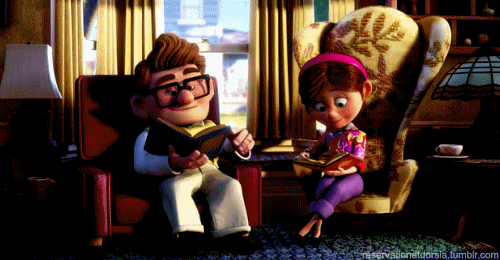 It fascinates me to know that billions of people all over the world are in committed relationships, and every single one of these relationships is absolutely, 100% unique to every other relationship in history. Isn't that wild?!
It fascinates me to know that billions of people all over the world are in committed relationships, and every single one of these relationships is absolutely, 100% unique to every other relationship in history. Isn't that wild?!
There are literally an infinite number of ways to create, maintain, and grow a romantic relationship.
It's so inspiring to me that there is no secret recipe for creating a truly happy, fulfilling, and loving relationship because it means it's completely up to you to determine what you want and what works best for you!
[Queue the segue...]
One of the most important and complicated elements in most romantic relationships is developing healthy sexuality as individuals and as a couple.
Yes, I mean sexuality, not just sex.
I've heard that term "healthy sexuality" come up a lot over the years... but what the heck does that mean? What's this "healthy sexuality" everyone's talking about?
Well, first we need to understand what sexuality is. To do this, it helps to first understand what it's not...
What Sexuality Is Not
Sexuality is not your sex.
Your sex is your biological status, most often determined by your sex chromosomes, and the type of reproductive organs you have.
Sexuality is not Gender.
Your gender is comprised of your attitudes, feelings, and behaviors towards other humans, and how these behaviors fit in with other normative cultural expectations aka: gender roles. Your brain determines the gender with which you identify... not your genitals.
Sexuality is not Sexual Orientation.
Sexual orientation is defined by WHO you love/date/are attracted to.
Each of the above topics is far more complex and nuanced than I've described. They worthy of their own individual blog posts (or their own books... which other people have already written). But what I've detailed should be enough to make my point.
So now you know what sexuality isn't. Let's talk about what it is.
What Sexuality Is
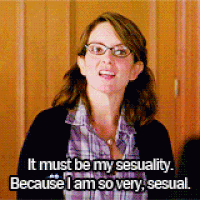 Sexuality is as complex as your own identity as a person.
Sexuality is as complex as your own identity as a person.
Think about the set of qualities and beliefs that make you completely different and unique from everyone else.
For example, I'm a guy who likes hamburgers, The Muppets, and occasionally picks his nose when nobody is looking. I value my family and my friends. I believe in the power of kindness. I value hard work, compassion, integrity, and I believe that I will never be done growing (figuratively) as a human being.
Those are a small number of the qualities and beliefs that identify me. That list could probably be 1,000 pages long and still be unfinished.
See how complex this is getting?
Now let's complete the analogy.
Sexuality is a combination of your sexual orientation, your gender, your sex, the gender roles of the society you live in, how comfortable you are with your body, your values, your self esteem, and your sexual experiences. It's how you've been influenced by your religion, family, friends, age, goals, and the media. It's how you experience touch, love, compassion, joy, sadness and loneliness. It's how you dress, what you find funny. And it's how you feel about it all!
Do you see how sexuality is incredibly nuanced, fluid, complex and messy?
Yet we have a tendency to want to simplify sexuality. Simple things make us feel comfortable and safe.
We often package up our sexuality with binary words like "good/bad,"" right/wrong," "safe/risky," "clean/dirty," or "gay/straight."
We attach labels and judgements to thoughts, feelings, behaviors, groups and practices that we agree with or don't agree with... that we feel a part of, or that make us uncomfortable.
The things we desire sexually we rush to deem as acceptable. But once we run up against something that makes us uncomfortable, or isn't up our alley, we rush to identify it as something that is perverse, gross, dirty or sinful.
The Hazards of Poor Judgement
Judgement is a very human behavior. We all do it.
Good judgement k eeps us safe. It's what keeps us from jumping off a cliff, walking into a dark alley at night, or talking to strangers.
eeps us safe. It's what keeps us from jumping off a cliff, walking into a dark alley at night, or talking to strangers.
Excessive, uninformed judgement turns us into close-minded self-righteous a-holes who are isolated from the world and condemn anyone who is different from them. Think Donald Trump.
And when it comes to sexuality too much judgement, especially uninformed or ill-informed judgement can be harmful and dangerous.
I'll demonstrate this in about 5 paragraphs.
Where The Anti-Porn Movement Goes Wrong
This is where the Anti-Porn movement goes wrong.
We've been quick to assign porn the labels of "bad," "evil," "wrong," "addictive," and "destructive."
Yet people (women included) look at porn for a HUGE list of reasons... and many of them are not "bad," "evil," or "destructive."
For example:
People look at porn because they're curious. They have a sensation, a desire, or a fantasy they would like to explore in a safe environment. Porn is a private and easy way to explore these often-new desires and curiosities.
People look at porn as an emotional escape. Everyone has moments where the stress, anxiety, and overwhelm in life becomes too much to handle. Porn consumers sometimes turn to porn as a quick escape from the pressures of life.
People look at porn because they feel cut off and lonely. They may not have a romantic partner, or even close friends. Porn is their short-term virtual companion and escape from loneliness.
People look at porn because they want to research new and exciting things to do in the bedroom.
Before reading on, take a moment to reflect. What were your emotional reactions to the reasons I listed above? Did any of them make you uncomfortable? Did you have the "I don't agree, so that is wrong/bad and not right/good!" narrative going on in your head?
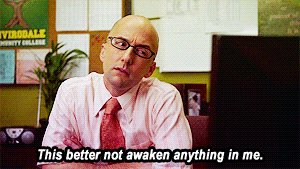 Having a "healthy" relationship with your sexuality means you can feel those judgements and ask yourself questions like this:
Having a "healthy" relationship with your sexuality means you can feel those judgements and ask yourself questions like this:
- Where did my judgements around sexuality come from?
- Are my judgements and opinions on sexuality fixed or adjustable?
- Am I willing to challenge my beliefs?
- Am I willing to have civil conversations with, and seek understanding with people who may have different opinions than my own?
- Have I ever changed my beliefs around sexuality in the past? Why? Could it happen again?
If you have an unhealthy relationship with porn, you probably have an unhealthy relationship with your sexuality.
Alternatively, one of the best things we can do to combat porn abuse is to develop healthy sexuality.
That means being willing to set aside your judgements regarding what you believe to be "right" and "wrong" or "good" and "bad." It means expressing empathy and attempting to understand the experience of others before labeling them. It's being willing to challenge your own paradigm.
Don't get me wrong, I'm not an advocate for porn. Not even a little bit. I am, however, an advocate for compassion, understanding, empathy, and healthy sexuality.
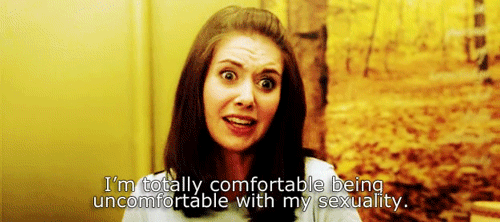 What has the potential to destroy your marriage is not porn. It's your unwillingness to understand the why's, when's, and what's that prompt you or your partner to look at porn. It's your resistance to exploring your partner's fantasy without judgement. It's your refusal to share the things you're ashamed of that feed your shame cycle*. It's your unwillingness to be vulnerable enough demonstrate to your partner your desire to develop a healthy emotional attachment full of honesty, transparency, and courage. It's the judgements you carry regarding what you believe to be "right" or "wrong." It's your defiance to educate yourself - even if it makes you a little uncomfortable - to the idea that someone else can have a valid experience that is unlike your own and that their experience may not be wrong, evil, or bad.
What has the potential to destroy your marriage is not porn. It's your unwillingness to understand the why's, when's, and what's that prompt you or your partner to look at porn. It's your resistance to exploring your partner's fantasy without judgement. It's your refusal to share the things you're ashamed of that feed your shame cycle*. It's your unwillingness to be vulnerable enough demonstrate to your partner your desire to develop a healthy emotional attachment full of honesty, transparency, and courage. It's the judgements you carry regarding what you believe to be "right" or "wrong." It's your defiance to educate yourself - even if it makes you a little uncomfortable - to the idea that someone else can have a valid experience that is unlike your own and that their experience may not be wrong, evil, or bad.
For example:
Imagine if every teenager who looked at porn had a relationship with a compassionate adult in their life with whom they felt comfortable sharing their experience. The adult could comfortably ask them shame-free questions like, "What did you experience?" "What did you enjoy?" "What did you not enjoy?" "Where do you think those positive/negative feelings came from?" "Would you like to look at porn again? Why or why not?" "Have you thought about _______?"
What would change? How would the world be different?
It's time to move away from the widely-held myths that men are the only ones who struggle with porn. Or that anyone who looks at porn is an addict, or in danger of becoming an addict. Or that all porn is damaging and unrealistic.
 Porn is like Voldemort (aka: He-Who-Must-Not-Be-Named). It holds power over us because we are scared of it, and we are unwilling to talk about it.
Porn is like Voldemort (aka: He-Who-Must-Not-Be-Named). It holds power over us because we are scared of it, and we are unwilling to talk about it.
The best way to combat porn is to celebrate our nuanced and complicated sexuality! We must give ourselves permission to talk about it! We must try to understand each other, cultivate our desires, and banish shame from the conversation.
You are a sexual snowflake.
(*Pro Tip: Most people who view porn and don't want to - from casual observers, to those who watch porn several times a day - are stuck in a negative shame cycle that consists of doing something wrong, keeping it a secret, and having lots of judgement around it. Break the cycle by making it ok to talk about, and getting rid of the judgement, and you can help those you care about develop healthy habits to manage their sexuality that don't include porn. Handling it with anger, outrage, and more judgement will just make it worse.)
Huge thanks to Kristin Hodson for her help and guidance with this piece. She's an incredible sex therapist, human being, mother, and friend (in no specific order). If you want to learn more about her, you can visit her website here, or follow her on Facebook here.
Episode #84 - John and Julie Gottman
Never in a million years would I have guessed when I started The Loveumentary back in 2012 that I would one day be sitting down in a hotel room with arguably the world's foremost experts, and most celebrated researchers on the topic of romantic love - John and Julie Gottman.
I'm constantly amazed that this little idea to interview awesome couples has grown into a resource that has helped to enlighten, inspire, and touch the lives of hundreds of thousands of people for the better. And I feel like we're just getting started...
One of the questions I get asked most often is "What's the secret sauce? What's the most important thing you've learned on this journey?"
The answer has changed over time, often depending on the themes that are emerging for me in my life and in the interviews I conduct. And after talking with the Gottmans, David York, and David and Gretchen, I think a new theme has emerged for me - and this one might be the most important "key to true love" of them all.
Be kind.
Here's a quote directly from the interview embedded above. I had just asked John what was his most surprising discovery in his 4+ decades of work. The answer was so surprising:
"The thing that surprised me the most was that the people who had really great relationships were really calm with each other, and really kind and considerate with one another." -John Gottman
Let me be clear, John Gottman has discovered a LOT of interesting things in his 40+ years of research.
He's the guy who can watch a couple argue for 5 minutes and predict with a 93% accuracy whether or not they'll get divorced.
He's discovered that 69% of all relationship conflict is unresolvable. They are the perpetual problems that need constant management and never have a perfect resolution. Ie: He likes Mexican food, she doesn't. Or, how your in-laws meddle and wan to influence how you raise your kids. (You can read more about how to deal with these types of problems here.)
He's written books on emotional intelligence, betrayal, effective communication strategies, and even how to adjust your relationship after having babies.
Yet the thing that has surprised him most is the abundance - and importance - of kindness and compassion in truly remarkable relationships.
It reminds me of last week's episode on the podcast. The foundation of David and Gretchen's amazing relationship is kindness.
It was Gretchen's kindness to encourage David to find someone who had all the qualities he wanted in a wife that made him realize that what he had with Gretchen was even better than his list.
It is their commitment to kindness that motivates them to treat each other as if their partner were the most special and prized human in the universe. This kindness allows them to navigate disagreements and inspires them to help each other fulfill their wildest dreams.
This kindness is at the center of their goal as a couple to help everyone they meet get one step closer to living their full potential.
David and Gretchen, Ty and Terri, MeiMei and Kiran... these couples (and so many more from the podcast) emulate what John Gottman said is the one-sentence summary of his 43 years of research...
If I had to summarize my 43 years of research into one sentence... it would be, 'When you're hurting baby, the world stops, and I listen.'" - John Gottman
Dr. Gottman even went so far as to say that if he could give his younger, single self one piece of advice it would be to get out of unkind dating relationships as quickly as possible.
When you're in a relationship with someone who is kind, they are quick to forgive, they are patient and understanding when you screw up, they are compassionate when you are hurting, they inspire you to pursue your dreams, they won't gossip behind your back, or scream at you when they are angry. They are thoughtful, supportive, and calm in times of duress.
Kindness is the framework for enduring love.
What can you do to be more kind to those you love? How can you create rituals and rules of kindness in your relationships so that they flourish rather than flounder? What is something kind the one you love has done for you lately? I'd love to hear your thoughts in the comments!































